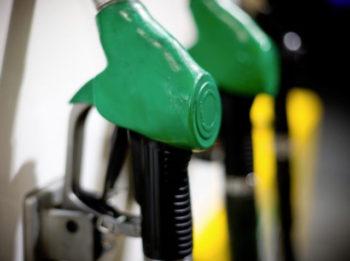Spring Budget 2020: Fuel duty to remain frozen for further year
Chancellor Rishi Sunak has announced that fuel duty will remain frozen for a further year, despite concerns from some groups over the impact on congestion and the environment.

The fuel duty freeze is estimated to have cost the Treasury more than £50bn in revenue foregone since 2011
Speaking in his first-ever Budget, four weeks after being promoted to the chancellor role, Sunak said he had heard representations that the Government could no longer afford to freeze fuel duty and added that he was “certainly mindful of the fiscal cost and the environmental impact” but committed to maintaining the freeze for a further year. This staves off the scheduled 2p-a-litre tax rise due at the pumps in April 2020 and sticks to promises made by Boris Johnson in his pre-election press conference.
The move will anger climate change activists and proponents of public transport. Campaign group Greener Journeys has said that the freeze in fuel duty since 2011 has caused an extra five million tonnes of greenhouse gas emissions by encouraging people to abandon public transport in favour of their cars.
The group also says the freeze has led to 5% more traffic, 250 million fewer bus journeys, 75 million fewer rail journeys and an extra 15,000 tonnes of NOx emissions, while it’s estimated to have cost the Treasury more than £50bn in revenue foregone.
It will also surprise those who thought the current slump in oil prices would have presented a good time to end the fuel duty freeze.
But Darren Shirley, Chief Executive of Campaign for Better Transport, said: “We are disappointed that the Chancellor has chosen to freeze fuel duty for another year, which has made car journeys progressively cheaper, whilst rail and bus fares have continued to rise. This has fuelled the decline in bus journeys and an increase of private car use. The Treasury should now look to replace fuel duty and Vehicle Excise Duty from 2025 with a road use charge based on distance travelled, time of day, and how polluting the vehicle is. The revenue raised by this charge should be retained locally and invested in public transport.”
However, according to Ashley Barnett, head of fleet consultancy at Lex Autolease, the timing for an increase in fuel duty is not quite there yet.
Barnett commented: “While the ultimate goal is to remove traditionally fuelled vehicles from our roads, it can’t happen overnight, as too many people are reliant on a private vehicle for their way of life, and can’t currently afford an EV. As the momentum shifts away from petrol and diesel, there will come a time where an increase in fuel duty is appropriate and will help fund investment in greener alternatives.”
The RAC also welcomed the continued freeze. Head of policy Nicholas Lyes said: “While the Chancellor might have been tempted to increase duty, the reality is that for millions this would have simply increased their everyday driving costs and done nothing to encourage them to switch to cleaner vehicles. And while many want to seek alternative transport options to using their vehicles for some journeys, in so many parts of the country reasonable public transport provision simply does not exist.”
There was, however, no response to calls from the RAC to ringfence 2p from every litre of petrol and diesel sold under existing duty rates to pay for maintenance on local roads; a move its research has found would be supported by six in 10 (59%) UK drivers. However, a number of measures have also been announced to address roads under a “record” infrastructure spend.

















